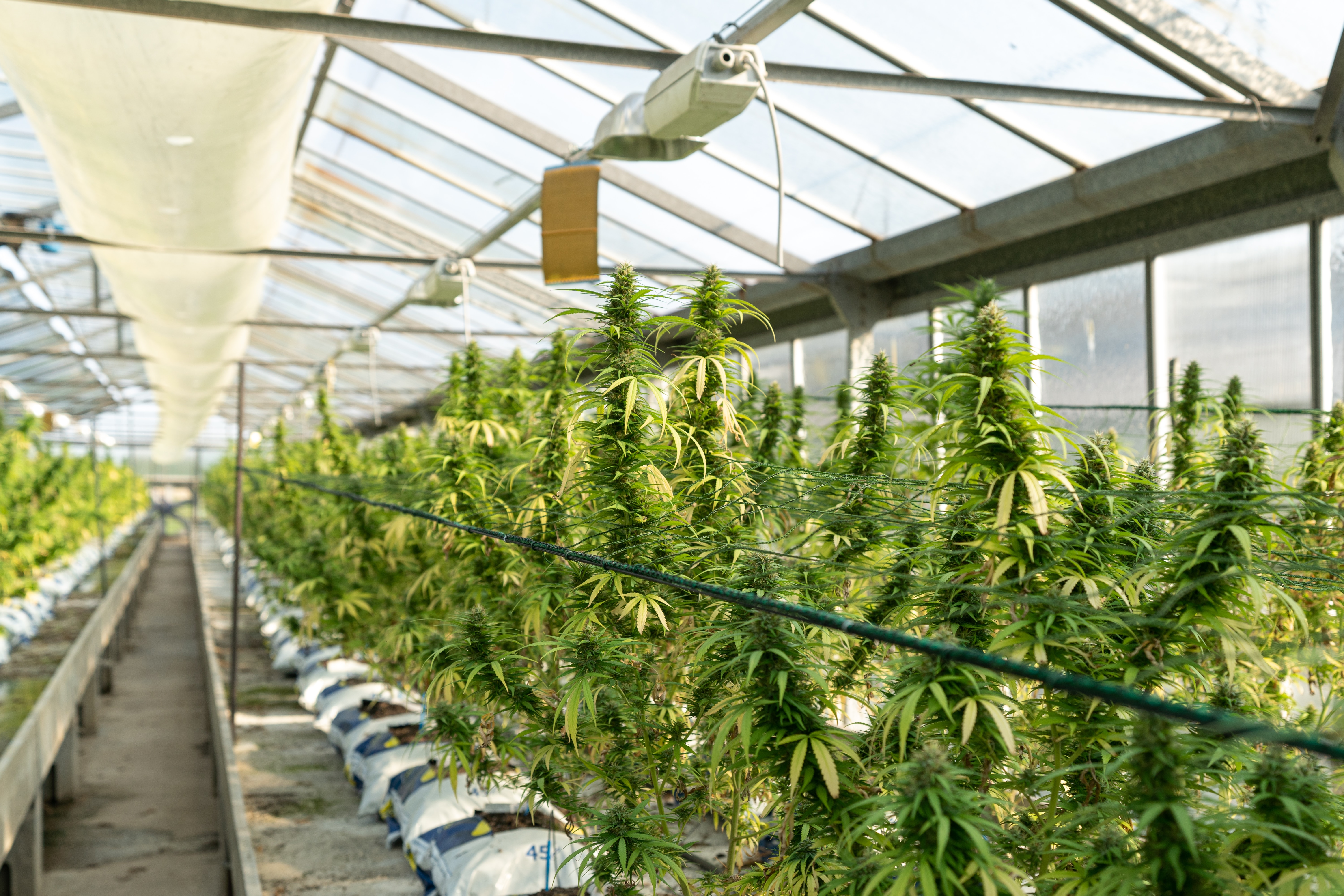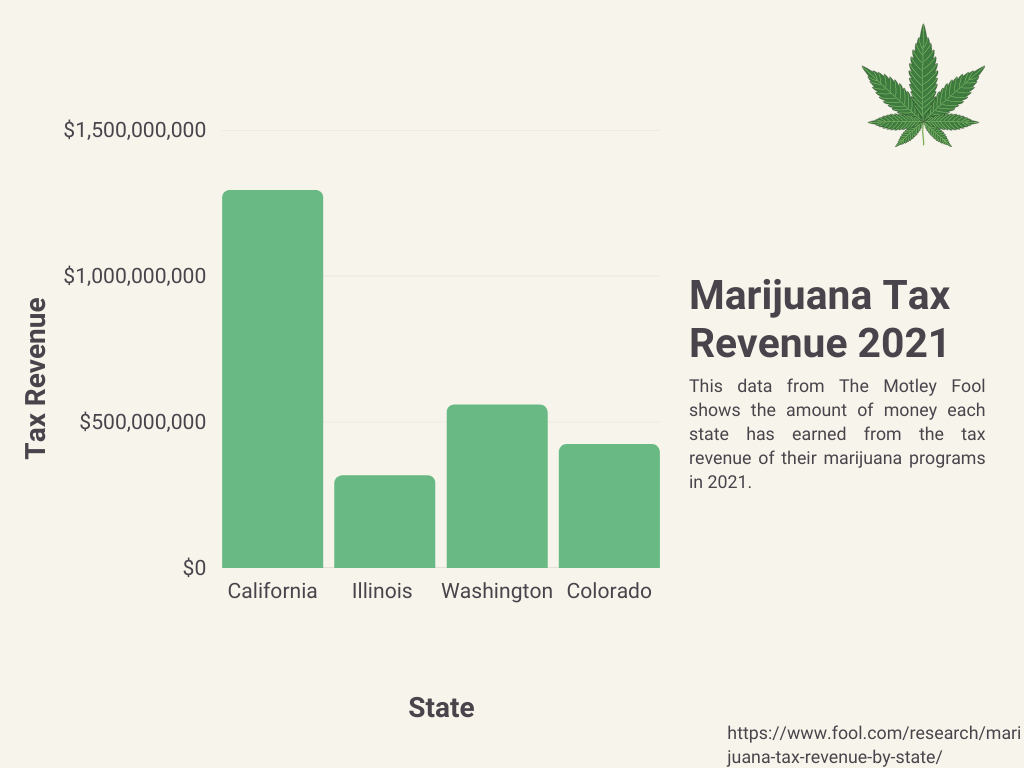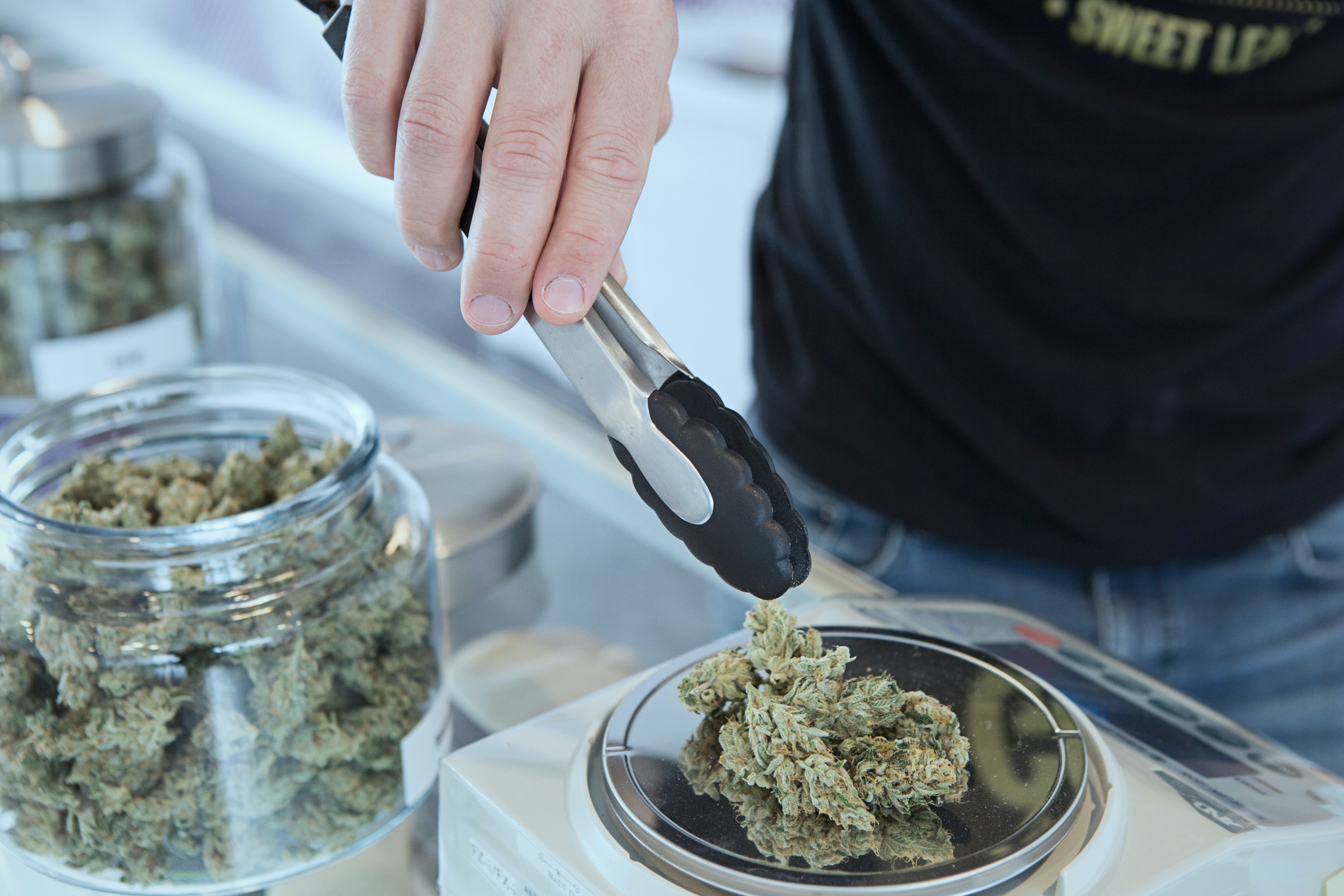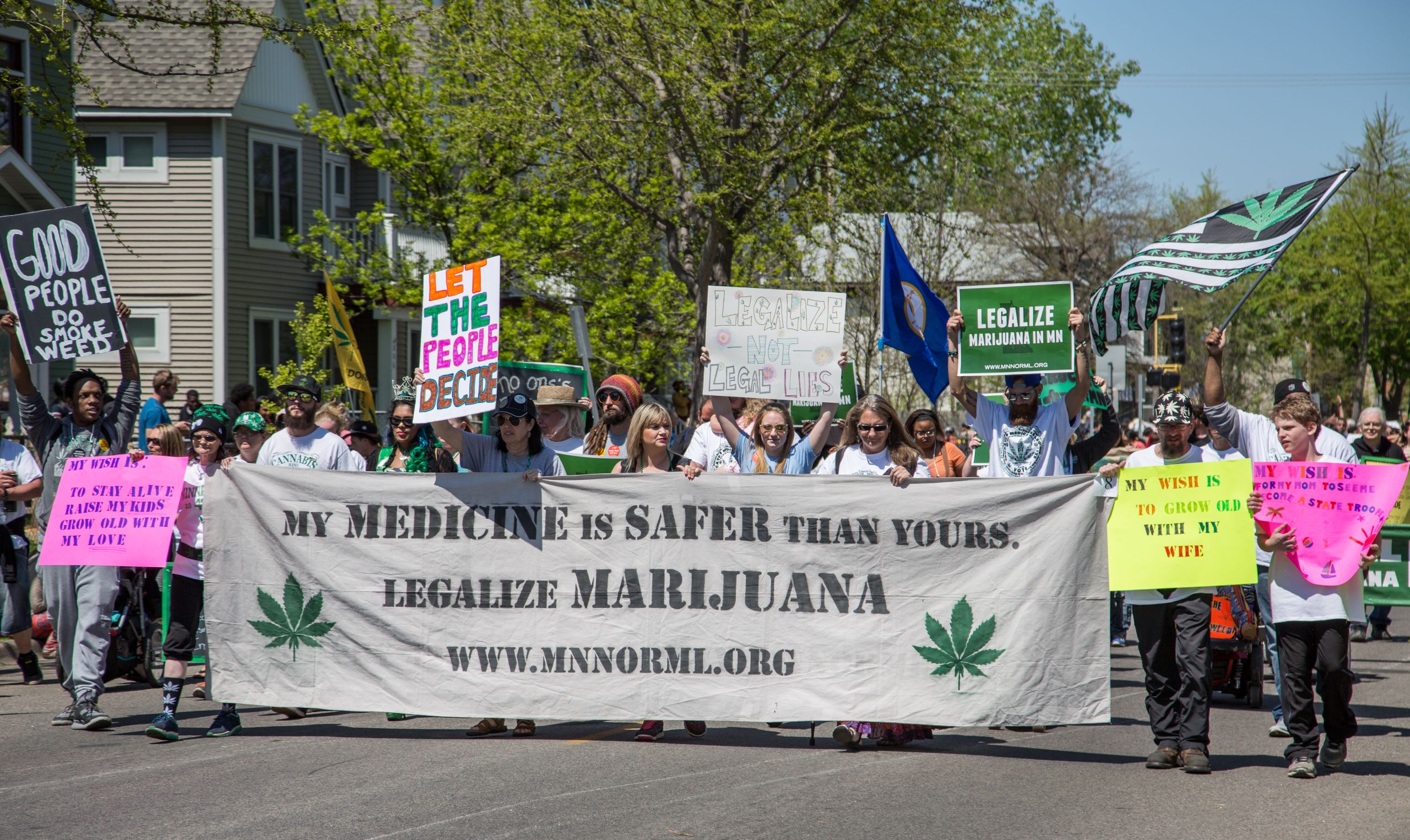More than half of the U. S. have some form of cannabis legalization program, whether it’s recreational or medical. But even with cannabis programs growing more than 40,000 individuals are incarcerated in the U.S. on marijuana-related charges.
Racial disparities in policing are proven in all states regardless of legalization. According to the marijuana law reform nonprofit, NORML, nearly 13,000, adults and just over 1,000 juveniles were arrested for possession of marijuana in 2021.
NORML’s data shows Black individuals are five times more likely to be arrested than white people for cannabis-related charges in Pennsylvania, even though cannabis use is roughly the same for both groups.
“If we had to think of a more just world it would be Black and Brown people being able to legally grow, produce, distribute, deliver, or sell cannabis products,” Tauid Chappel, founder of Philly CannaBusiness Association, said. “That money generated … supports their businesses but also goes back into the communities that have been destabilized and devalued by the war on drugs and puts resources into those communities to help them get healthy again.”
The war on drugs has been affecting communities of color since the Nixon administration. With state after state ending cannabis prohibition, how can communities that have been damaged benefit from legalization?
“One thing you can do is pardon and expunge and obviously pardoning and expunging means de-incarcerating,” said former Pennsylvania State Senator Daylin Leach. “Stop punishing people for a crime that is not a crime anymore, that’s number one. Number two, you have to provide some economic opportunities to communities that were not only adversely affected by cannabis prohibition, but in fact, targeted.”
The Biden administration

On Oct. 6, 2022, President Joe Biden pardoned thousands convicted of marijuana possession, and promised to examine its drug classification. This pardon does not expunge convictions but allows individuals to regain civil liberties such as the right to vote, sit on a jury, and hold public office. Biden also wants governors to pardon for state marijuana violations as fewer than 800 cases are brought to federal court. However, the Marshall Project estimates nearly 30,000 state cases exist nationwide.
Zachary Uzupis, executive director of Bucks County NORML, said, “Even after all of the pardons get processed, there will still be many who deserve to be pardoned who are not part of it. It is the hope of Bucks County NORML that cannabis victims, i.e., people who are imprisoned by cannabis sentencing are set free from those crimes with their records expunged, unequivocally. I would go so far as to say that these people deserve reparations for their lives being ruined. But that’s an unrealistic wish. Instead, I hope that these people are released as quickly as possible and that the people who are out of prison their records are expunged immediately.”
Cannabis is predicted to be a $100 billion dollar industry by 2030. Yet as of 2021, only 13.1 percent of industry executives are minorities. Social equity programs are put in place by cannabis companies or states, where cannabis is legal for medical or adult use to help ensure those with convictions prior to legalization have a chance to participate.
“If it is going the way it’s going, it will be very white, male-dominated,” Chappel said. “[Philly CannaBusiness’] goal is to make it as diverse as possible.”
Adult use legalization
Restorative justice programs give back to the communities and people disadvantaged by cannabis prohibition. In New York state these individuals will have priority in the marijuana regulation and taxation act. Social justice initiatives are built into the bill, including restorative justice. Nearly 40% of the funds accumulated from the sale of recreational marijuana will be dispersed to nonprofit organizations in communities affected most by the war on drugs and will help to fund job placement programs, housing, and financial literacy. The bill also will work toward plans to create diversity and equity in ownership and employment in the cannabis market, although there may be issues with these policies.
Dr. Matt Reid, assistant professor of sociology and criminology, said “In terms of communities, depending on how they structure legalization, tax money can go to schools … I would like to see, if they legalize it, some of that tax money go toward restorative justice programs. So, expungement programs, and ways for people who were arrested for weed to seek normalcy.”
As reported by the Marijuana Policy Project $538.7 million from taxes on cannabis were used to improve Colorado’s public school system. In Connecticut, nearly 60% of cannabis tax revenue will fund social equity programs supporting workforce education, community funding, and individual access to business.

After years of redlining policies, Evanston, Illinois voted to pass a historic program to fund housing reparations for Black residents. Funds will come from the “first $10 million in revenue from the city’s tax on the sale of recreational marijuana.”
One medical marijuana patient in Pennsylvania who wished to remain anonymous said, “It’s pretty bipartisan at this point … Everybody wants weed to happen. I don’t understand why it doesn’t happen. Especially when the government could benefit from taxation and legalization … I would like to see decriminalization of most drugs just because then you can have people seek help without fear.“
Home grow provisions

The future of recreational legalization opens up the possibility for people to grow their own cannabis, however, access still remains a problem. Home grow provisions not only allow individuals to grow their own medicine, but also promote financially equitable consumption.
Uzupis said, “Any recreational law that goes forward must have a homegrown provision … Not only will this provide low cost medicine for people who have a green thumb, but it will also put a check on the multistate operators who are right now more or less operating as an almost oligarchic force, preventing prices from going lower because they control the medium of production.”
Future of legalization
The 2022 midterm election resulted in a democratic majority with Governor Josh Shapiro, and newly elected U.S. Senator John Fetterman both supporting recreational legalization. Many now wonder when the Keystone State will join the dozens of others ending cannabis prohibition.
Leach is optimistic. “I think it is going to be sooner than people may have otherwise thought,” he’s said. “The more states that do it and the more the sky doesn’t fall it becomes harder to justify. It becomes harder to sustain this irrational, foolish, and frankly racist policy.”






